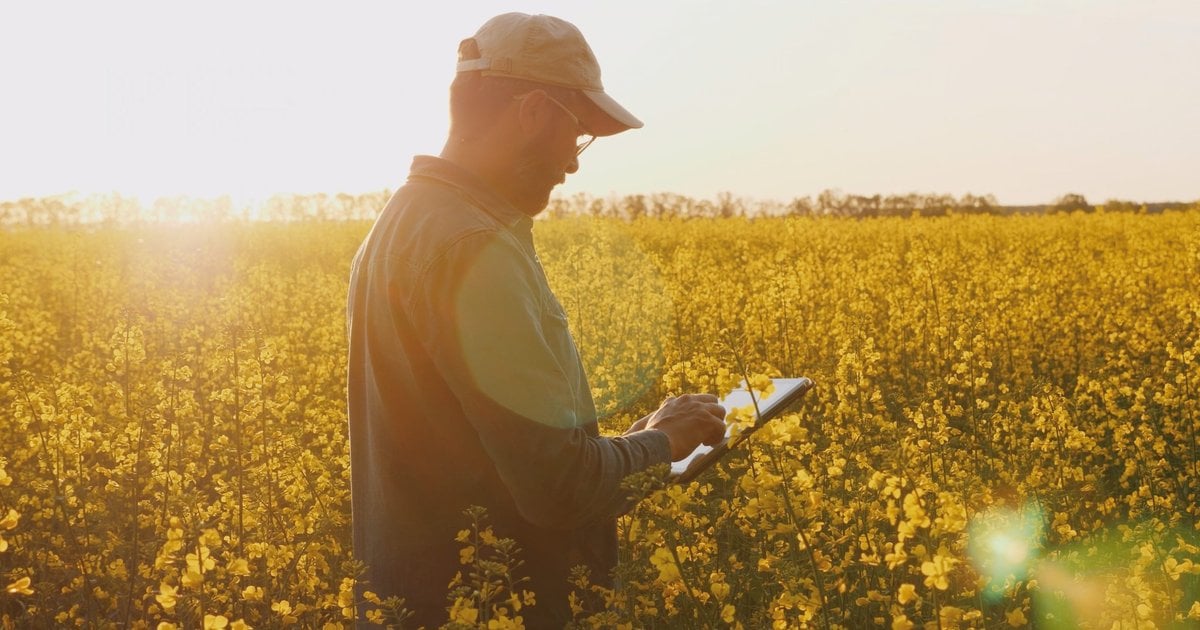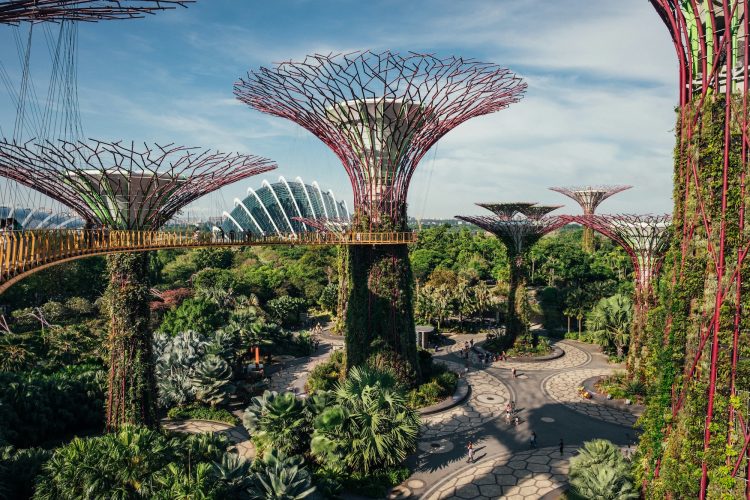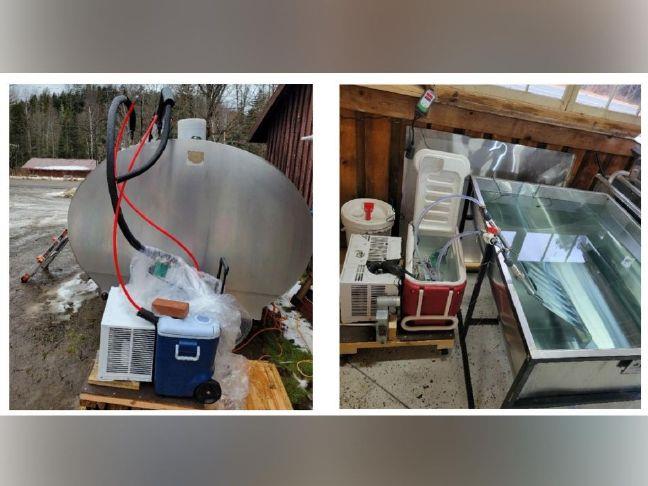How Is PepsiCo Improving Soil Health In Its Supply Chain? – Food Digital

Report on PepsiCo’s Regenerative Agriculture Initiative and its Alignment with Sustainable Development Goals
Partnership Overview
- Parties Involved: PepsiCo and agronomic firm Soil Capital.
- Scope: A long-term partnership targeting PepsiCo’s European supply chain.
- Geographic Focus: Initial implementation in the United Kingdom, France, and Belgium.
- Objective: To expand the adoption of regenerative agriculture practices among farmers supplying key raw ingredients, such as rapeseed oil for Lay’s and Walkers products.
Strategic Objectives and Practices
- Enhance Farmer Capabilities: Provide farmers with access to technical tools and specialized consultancy support.
- Promote Sustainable Farming Methods: Encourage the adoption of practices designed to improve environmental outcomes.
- Reduction in the use of synthetic inputs.
- Transition to organic fertilisers.
- Adoption of cover crops to protect and enrich soil.
- Achieve Key Sustainability Outcomes: The initiative is designed to deliver measurable improvements in environmental health and supply chain resilience.
Contribution to Sustainable Development Goals (SDGs)
- SDG 2: Zero Hunger: By focusing on improving soil health and building resilience in its agricultural supply chain, the partnership directly supports sustainable agriculture (Target 2.4) and aims to secure the long-term availability of key food ingredients, contributing to food security.
- SDG 12: Responsible Consumption and Production: The initiative represents a significant step towards sustainable management and efficient use of natural resources (Target 12.2) within a major global food production value chain. It encourages sustainable production patterns by integrating regenerative practices at the source.
- SDG 13: Climate Action: A primary goal of the collaboration is the reduction of carbon emissions from agricultural activities. This directly addresses the need to integrate climate change measures into corporate strategies and practices (Target 13.2) by mitigating the carbon footprint of farming.
- SDG 15: Life on Land: The programme’s core practices—improving soil health, supporting water efficiency, and preventing land degradation—are central to combating desertification and halting biodiversity loss (Target 15.3). Healthier soil ecosystems are fundamental to sustainable land management.
- SDG 17: Partnerships for the Goals: This collaboration between a multinational corporation (PepsiCo) and a specialized agronomic firm (Soil Capital) exemplifies a multi-stakeholder partnership (Target 17.17) that leverages combined expertise and resources to advance sustainable development.
Conclusion
The partnership between PepsiCo and Soil Capital demonstrates a value-chain approach to scaling regenerative agriculture. As stated by Archana Jagannathan, Chief Sustainability Officer at PepsiCo Europe, the initiative is crucial for building resilience for the food supply, the environment, and farming communities. By providing practical, localized solutions, the programme aims to accelerate the adoption of sustainable practices, reduce agricultural emissions, and ensure the long-term viability of key ingredients, thereby making a tangible contribution to multiple Sustainable Development Goals.
SDGs Addressed in the Article
-
SDG 2: Zero Hunger
The article addresses SDG 2 by focusing on sustainable food systems and resilient agricultural practices. The partnership aims to secure the long-term supply of key raw ingredients like rapeseed oil, which is crucial for food production. The emphasis on “regenerative agriculture” and “building resilience for our food supply” directly contributes to creating sustainable food production systems.
-
SDG 12: Responsible Consumption and Production
This goal is central to the article’s theme. PepsiCo’s initiative to work with its European supply chain on regenerative agriculture demonstrates a commitment to sustainable production patterns. The focus on reducing synthetic inputs, using organic fertilisers, and ensuring the “long-term sustainability of our key ingredients” aligns with the principles of responsible resource management.
-
SDG 13: Climate Action
The article explicitly mentions the goal of “reducing carbon emissions” and “reducing agricultural emissions” through the new farming practices. This directly connects the initiative to climate change mitigation efforts, which is the core of SDG 13.
-
SDG 15: Life on Land
The initiative’s core objectives include improving soil health, supporting water efficiency, and preventing land degradation. Practices like adopting cover crops and reducing synthetic inputs are designed to protect and restore terrestrial ecosystems, which is a key aspect of SDG 15.
-
SDG 17: Partnerships for the Goals
The entire article is about a “long-term partnership” between PepsiCo, a multinational corporation, and Soil Capital, an agronomic firm. This collaboration across the value chain to “mobilize and share knowledge, expertise, technology” (in the form of technical tools and consultancy) is a clear example of a multi-stakeholder partnership to achieve sustainable development.
Specific SDG Targets Identified
-
Target 2.4
“By 2030, ensure sustainable food production systems and implement resilient agricultural practices that increase productivity and production, that help maintain ecosystems… and that progressively improve land and soil quality.” This target is directly addressed through the promotion of “regenerative agriculture,” which aims to improve soil health, build resilience for the food supply, and ensure the long-term sustainability of farming.
-
Target 12.2
“By 2030, achieve the sustainable management and efficient use of natural resources.” The initiative’s focus on securing the “long-term supply of key raw ingredients” and promoting “water efficiency” reflects a strategy for the sustainable management of natural resources within PepsiCo’s supply chain.
-
Target 13.1
“Strengthen resilience and adaptive capacity to climate-related hazards and natural disasters in all countries.” The article highlights that regenerative agriculture is key to “building resilience for our food supply, the environment and farming communities,” which directly relates to strengthening the adaptive capacity of the agricultural sector to climate change.
-
Target 15.3
“By 2030, combat desertification, restore degraded land and soil… and strive to achieve a land degradation-neutral world.” The program’s explicit goals to “improve soil health” and “prevent land degradation” through practices like using cover crops and organic fertilisers are in direct alignment with this target.
-
Target 17.17
“Encourage and promote effective public, public-private and civil society partnerships…” The collaboration between PepsiCo and Soil Capital is a prime example of a private-private partnership designed to leverage combined expertise (“technical tools and consultancy support”) to achieve sustainability goals across a supply chain.
Indicators Mentioned or Implied
-
Reduction in Carbon Emissions
The article explicitly states that the collaboration aims to “reduce carbon emissions” and achieve “meaningful progress reducing agricultural emissions.” This provides a clear, measurable indicator of the program’s success in contributing to climate action (SDG 13).
-
Adoption of Regenerative Agriculture Practices
The expansion of practices such as “reducing the use of synthetic inputs,” “switching to organic fertilisers,” and “adopting cover crops” can be tracked. The number of farmers or the total area of farmland adopting these practices serves as an indicator of progress towards sustainable agriculture (SDG 2 and SDG 15).
-
Improvement in Soil Health
A key goal mentioned is to “improve soil health.” While the article doesn’t specify the metrics, soil health can be measured through indicators like soil organic matter content, water retention capacity, and biodiversity. These metrics would serve as direct indicators for progress on Target 15.3.
-
Establishment and Scale of Partnerships
The existence of the “long-term partnership” itself is an indicator for SDG 17. Its scale, measured by the number of farmers engaged in the UK, France, and Belgium, indicates the reach and impact of the collaborative effort.
SDGs, Targets, and Indicators Analysis
| SDGs | Targets | Indicators |
|---|---|---|
| SDG 2: Zero Hunger | Target 2.4: Ensure sustainable food production systems and implement resilient agricultural practices. | The expansion and adoption of regenerative agriculture practices (e.g., cover crops) across the supply chain. |
| SDG 12: Responsible Consumption and Production | Target 12.2: Achieve the sustainable management and efficient use of natural resources. | Reduced use of synthetic inputs and a switch to organic fertilisers, ensuring long-term sustainability of raw ingredients. |
| SDG 13: Climate Action | Target 13.1: Strengthen resilience and adaptive capacity to climate-related hazards. | Measured reduction in carbon emissions and agricultural emissions from participating farms. |
| SDG 15: Life on Land | Target 15.3: Combat desertification, restore degraded land and soil. | Measured improvements in soil health and prevention of land degradation on farms in the program. |
| SDG 17: Partnerships for the Goals | Target 17.17: Encourage and promote effective public-private and civil society partnerships. | The establishment and scale of the long-term partnership between PepsiCo and Soil Capital, including the number of farmers receiving support. |
Source: fooddigital.com
What is Your Reaction?
 Like
0
Like
0
 Dislike
0
Dislike
0
 Love
0
Love
0
 Funny
0
Funny
0
 Angry
0
Angry
0
 Sad
0
Sad
0
 Wow
0
Wow
0















































































